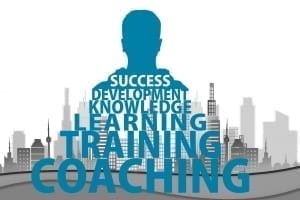What You Need to Know About Executive Coaching for Your Business

It is all about maximizing the results of individuals and leadership teams in all types of organizations, from small businesses to large corporations internationally. The benefits are many: increased performance at work, fewer sick days caused by stress, increased productivity, and more satisfied employees who stay longer with their company.
Executive coaches also provide a glimpse into the hidden truths underlying employee behaviors while giving organizations insights they can use to make strategic decisions on allocating resources and improving their culture over time.
Professional Coaches VS Life Coaches
Although both executive coaches and life coaches focus on helping you accomplish your goals, executive coaching focuses on organizational leadership, career planning, personal performance, and action-oriented goal setting. In contrast, life coaching provides you with a safe place to discuss your issues in order to improve yourself (or your relationship) personally.
Executive coaching has its base in psychological theories such as positive psychology or emotional intelligence, while life coaching originates from different psychological ideas or personal philosophies.
Today’s society has a broad consensus that the business environment is complex and unpredictable. Psychologists connect this to the fact that many business people are highly intelligent, making them more likely to work toward their goals.
In return, it is important to have people whose experience and expertise can help you make better decisions, especially during times of change – that’s where coaching can come into play and save the day.
The Benefits of an Executive Coach
One of the main benefits of executive coaching is that it saves organizations time and money. By hiring a coach, an organization can save as much as 30% or more in annual coaching fees. Additionally, many organizations find that executive coaching leads to less employee turnover and fewer sick days over the long term.
There are pros and cons to every form of professional development, including executive coaching. The benefit of business coaching is that it fits seamlessly into an organization’s structure and allows you to reduce costs by hiring the right executive coach for your company.
On the other hand, hiring an executive coach requires time, training, hiring procedures, and culture change in organizations – but the long-term benefits of it do outweigh the initial work to be done. Positive change doesn’t happen overnight, after all.
How to Find an Executive Coach for Your Business
Exercise good business sense when hiring an executive coach – and look for experience. For example, you would employ a cardiac surgeon over a general practitioner if you needed heart surgery. A surgeon has devoted his life to the heart and has helped many patients through different surgeries and procedures – and that’s the level of experience you’d want from your company’s executive coach.
Look for someone who has had experience in executive coaching and consider asking for a list of their clients’ names to see their level of success. It is also important that the coach has a good reputation in the business community. Look for a coach who can give you collateral, such as a book, a professional resume, an article about coaching, or real client testimonials. The more information you have about the executive coach, the better you can make an informed decision.


 Midshipman receive feedback numerous times a day during almost every activity in which they are involved. This feedback is intended to strengthen their performance and character; preparing them for the extreme challenges of leadership in combat and other high-risk situations.
Midshipman receive feedback numerous times a day during almost every activity in which they are involved. This feedback is intended to strengthen their performance and character; preparing them for the extreme challenges of leadership in combat and other high-risk situations.